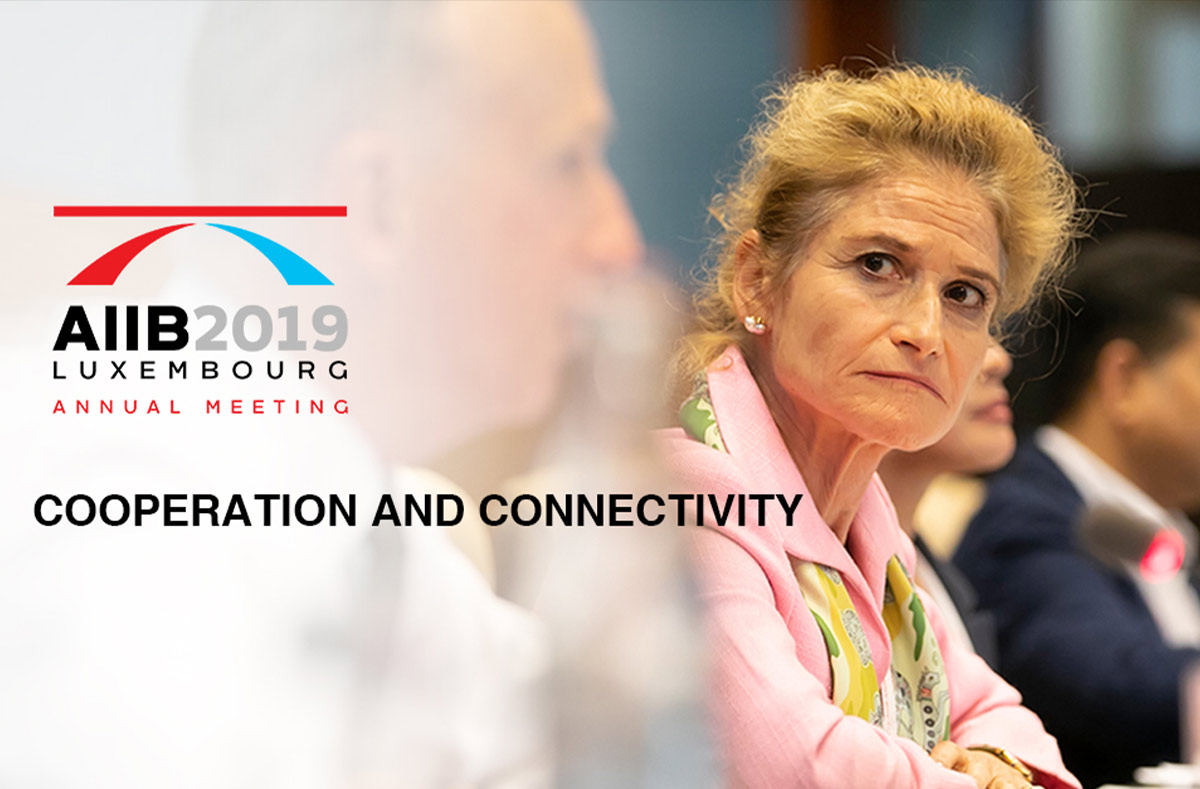Our panel discussion on Gender Equality for Sustainable Infrastructure at the 2019 Asian Infrastructure Investment Bank (AIIB) Annual Meeting held in Luxembourg on July 12-13 was made interesting by Chris Hurst (European Investment Bank), Eva Kail (City of Vienna, Austria), Maria Catalina Cabral (Philippines), Nato Kurshitashvili (World Bank) and Shafiqul Islam Akand (Bangladesh).
We had an interesting discussion, as each panelist was able to bring their diverse experiences to the issues of gender gaps with respect to infrastructure and what AIIB as a young institution should do from the start to address these issues.
There was agreement by all panelists that while gender gaps existed in accessing the benefits of infrastructure related to transport, energy and urban space, there was no single solution; much depended on the sector and country context.
However, all members thought proper consultation was key in understanding the gaps and thinking about solutions. Insights from women in these consultations can contribute to better project design and implementation as well as better distribution of project benefits. As consultation can be gender-blind, it is important to have in place measures to ensure that women are consulted throughout the project cycle from preparation, construction and during operations. To ensure that this happens, it is sometimes useful to have targets for the number of women participating in consultations or to conduct separate consultations with women.
The dearth of gender-disaggregated data for the infrastructure sector is a huge obstacle both to assessing the extent of the gender gap as well as to progress being made to close it. It was acknowledged that much needs to be done on this front, particularly with respect to the granularity of the data collected. Women are not a homogenous group and so understanding what data to collect and how is key. While various methods to collect both qualitative and quantitative data are available and made easy with technology, the panel warned that the use of technology may exclude those who may not have access to digital resources and who are often the most vulnerable of all stakeholders. The conclusion was that various modes of data collection were needed and that inclusive consultation is still best to ensure all voices are heard. However, the panel also pointed out that the biggest challenge is how to use the data collected to establish the economic and business case for clients to articulate actual gender gaps in accessing the infrastructure and the associated benefits (such as employment) and to thereby help improve infrastructure design and delivery of services to women.
Eva advocated for AIIB to start with both bottom-up and pilot approaches which can be rolled out, along with thought capacity building within an institution.
Undersecretary Cathy thought AIIB should continue with meaningful engagement with all stakeholders on the issues and support borrowers with gender tool kits for all infrastructure sectors.
Shafiqul, based on his experience from working on World Bank and Asian Development Bank projects, suggested that AIIB build the capacity of its own staff rather than outsource the work to consultants.
Chris Hurst thought that AIIB should build awareness within the institution (with leadership form the top), formulate a strategy to keep the agenda in sight and then formally build gender into sector strategies.
Nato’s three pieces of advice were to appoint suitably qualified experts, prioritize where and what AIIB does in terms of closing gender gaps and finally but not least, increase the capacity of all project staff on gender so that they can initiate the discussion with the client and help clients take on gender in projects.
This was all very useful advice for AIIB to consider as it maps its way of addressing gender gaps in access to infrastructure.
Photos from the panel discussion can be found on Flickr here.


